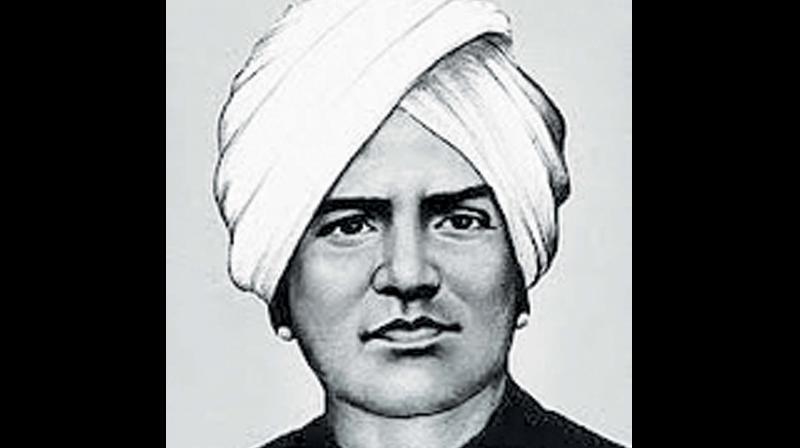Chennai: Iyothee Thasa Pandithar, a forgotten social reformer
Iyothee Thasa Pandithar was born on May 20, 1845, in Nilgiris. His parents named him as Kathavarayan.

Chennai: Iyothee Thasa Pandithar, a trailblazer, who defined modern Tamil identity and anchored the Buddhist revival in Tamil Nadu besides pioneering social reforms aimed at the uplift of the Dalits, seems to be forgotten in this land of rationalist revolutionary Periyar EVR.
Pandithar’s 150th death anniversary on May 5 passed off without mention by anyone, including the so-called Tamil activists, scholars and political parties that take pride in sporting the ‘Dravida’ tag to their names. Despite his being the author of the rationalist movement in the state nearly 70 years before Periyar.
Considered as the forerunner to the social justice movement in the then Madras Presidency, Pandithar was a multifaceted personality and a scholar par excellence in Tamil, Siddha medicine and philosophy besides being well versed in English, Sanskrit and Pali languages. He was a speaker for Tamil identity who hoped that development of Dalits would be possible only under the domain of Tamil identity.
Iyothee Thasa Pandithar was born on May 20, 1845, in Nilgiris. His parents named him as Kathavarayan. As he admired his teacher Tondai Mandalam Vallakalatinagar Vee. Iyothithaasa Kavirayar Pandithar, the young man changed his name to Iyothee Dasa Pandithar. His teacher taught him Siddha and Tamil.
In early 20th century, a group of intellectuals identifying themselves as Panchamars from the Tamil Dalit communities were working towards the emancipation of their fellow citizens. Pandithar was an important thinker among them. He was the first representative of Dalits and Tribal people who took up the malaise of caste discrimination with the British government. He formed Dravida Mahajana Sabha for development of Dalits in 1876.
In 1891, Pandithar urged Dalits to register themselves as “casteless Dravidians” instead of identifying themselves as Hindus. In 1907, he launched a newspaper ‘Oru Paisa Tamilan’, which was renamed as Tamilan following to the request of readers.
Pandithar worked for the uplift of Dalits in Kolar Gold Field (KGF) in Karnataka, Yangon in Myanmar and Durban in South Africa. Though his family was following Vaishnavism, he did not try to understand the rituals followed in the sect. After meeting Colonel H.S.Olcott (first president of the Theosophical Society) Pandithar converted to Buddhism.
Prominent sociologist and author G Aloysius pointed out that the seed of rationalism and anti-caste movement was sown by more than a century ago. He was the first leader to speak for Dravida and his teachings are more relevant today. “It is sad that the people in Tamil Nadu, which is considered as a Dravidian land, forgot his contribution”, he said.

